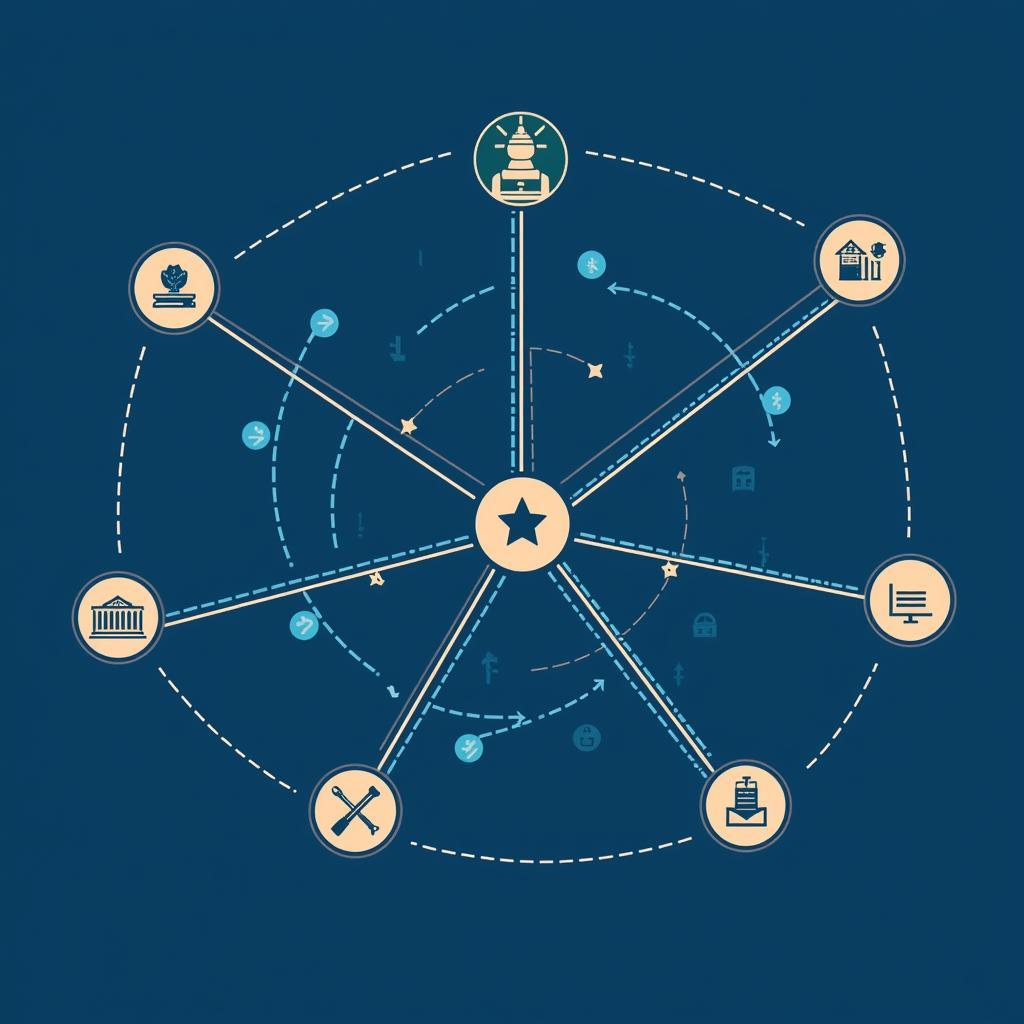The ASEAN Legal Services Plan is becoming increasingly crucial for businesses and individuals operating within the dynamic Southeast Asian region. This comprehensive guide delves into the intricacies of the plan, offering valuable insights for navigating the legal complexities of the ASEAN market. We’ll explore its benefits, challenges, and future prospects, equipping you with the knowledge to make informed decisions.
Understanding the ASEAN Legal Services Plan
The ASEAN Legal Services Plan aims to harmonize legal frameworks across member states, facilitating smoother cross-border transactions and promoting greater legal certainty. This initiative acknowledges the diverse legal systems within ASEAN and seeks to create a more integrated and predictable legal environment. It addresses various areas, including commercial law, dispute resolution, and legal education.
The plan’s core objectives include enhancing regional competitiveness, attracting foreign investment, and empowering individuals and businesses to operate confidently within ASEAN. By streamlining legal processes and promoting mutual recognition of legal qualifications, the plan fosters greater legal cooperation and integration within the region.
Benefits of the ASEAN Legal Services Plan
The ASEAN Legal Services Plan offers numerous advantages for businesses and individuals. Some key benefits include:
- Reduced legal complexities: The plan simplifies cross-border transactions by harmonizing legal procedures and requirements, making it easier to navigate the ASEAN market.
- Increased legal certainty: A more predictable legal environment reduces risks and uncertainties for investors, fostering greater confidence in the region’s legal systems.
- Enhanced regional competitiveness: By promoting legal integration, the plan enhances ASEAN’s attractiveness as a destination for foreign investment and trade.
- Improved access to justice: The plan aims to strengthen legal frameworks and improve access to legal services, benefiting individuals and businesses alike.
- Greater mobility of legal professionals: Mutual recognition of legal qualifications facilitates the movement of legal professionals within ASEAN, fostering greater expertise and collaboration.
 Benefits of ASEAN Legal Services Plan
Benefits of ASEAN Legal Services Plan
Challenges and Opportunities of the ASEAN Legal Services Plan
Despite its potential, the ASEAN Legal Services Plan faces various challenges:
- Differing legal systems: Harmonizing diverse legal traditions and practices across ASEAN member states requires significant effort and coordination.
- Political and economic considerations: National interests and varying levels of economic development can create obstacles to regional integration.
- Implementation and enforcement: Effective implementation and enforcement of the plan’s provisions require strong political will and institutional capacity.
However, these challenges also present opportunities:
- Strengthening regional cooperation: Overcoming these obstacles can foster greater cooperation and trust among ASEAN member states.
- Promoting innovation in legal services: The plan can encourage innovation and the development of new legal technologies and services.
- Building a more integrated ASEAN community: Successfully implementing the plan can contribute to a more integrated and prosperous ASEAN community.
 Challenges and Opportunities of the ASEAN Legal Services Plan
Challenges and Opportunities of the ASEAN Legal Services Plan
What is the Aim of the ASEAN Legal Services Plan?
The ASEAN Legal Services Plan aims to create a more unified and transparent legal environment across Southeast Asian nations. This involves harmonizing legal practices, improving access to justice, and boosting cross-border trade.
How Does the ASEAN Legal Services Plan Benefit Businesses?
Businesses benefit significantly from reduced legal complexities, greater legal certainty, and enhanced regional competitiveness facilitated by the plan. It simplifies market access and encourages investment within the ASEAN region.
What are the key components of the ASEAN Legal Services Plan?
Key components include harmonizing commercial laws, streamlining dispute resolution mechanisms, promoting mutual recognition of legal qualifications, and enhancing legal education and training within ASEAN.
Mr. Kevin Lee, a prominent legal expert specializing in Southeast Asian law, comments, “The ASEAN Legal Services Plan is a significant step toward regional legal integration. It’s crucial for businesses to understand its implications and leverage its benefits to succeed in the ASEAN market.”
The Future of the ASEAN Legal Services Plan
The ASEAN Legal Services Plan is a dynamic initiative with ongoing development and evolution. Future directions include:
- Expanding the scope of the plan: The plan may expand to cover new areas of law and address emerging legal challenges.
- Strengthening regional institutions: Building stronger regional institutions will be crucial for effective implementation and enforcement.
- Engaging with stakeholders: Continued engagement with stakeholders, including businesses, legal professionals, and civil society organizations, is essential for the plan’s success.
 Future of the ASEAN Legal Services Plan
Future of the ASEAN Legal Services Plan
Conclusion
The ASEAN Legal Services Plan presents a significant opportunity for businesses and individuals to thrive in the dynamic Southeast Asian market. By understanding its intricacies and adapting to the evolving legal landscape, you can unlock the full potential of the ASEAN region. This plan fosters greater legal certainty, reduces complexities, and ultimately contributes to a more integrated and prosperous ASEAN community.
FAQ
- What is the primary goal of the ASEAN Legal Services Plan? To harmonize legal frameworks across ASEAN member states, facilitating easier cross-border transactions.
- How does the plan benefit businesses? It reduces legal complexities, increases legal certainty, and enhances regional competitiveness.
- What are the main challenges facing the plan? Differing legal systems, political and economic considerations, and implementation and enforcement challenges.
- What are the future prospects of the plan? Expanding the scope, strengthening regional institutions, and engaging with stakeholders.
- Where can I find more information about the ASEAN Legal Services Plan? Contact us for more details and resources.
- How can the plan improve access to justice? It aims to strengthen legal frameworks and improve access to legal services, benefiting both individuals and businesses.
- How does the plan promote regional integration? By streamlining legal processes and promoting mutual recognition of legal qualifications, it fosters greater legal cooperation and integration.
Ms. Anya Sharma, a seasoned consultant with extensive experience in ASEAN trade and investment, adds, “Businesses operating in Southeast Asia must understand that the ASEAN Legal Services Plan isn’t merely a set of regulations. It’s a roadmap to a more integrated and predictable legal landscape. Embracing this roadmap is essential for long-term success in the region.”
Need Support with the ASEAN Legal Services Plan?
Contact us for personalized assistance and expert guidance.
Phone: 0369020373
Email: [email protected]
Address: Thon Ngoc Lien, Hiep Hoa, Bac Giang, Vietnam
Our dedicated customer support team is available 24/7 to answer your questions and provide tailored solutions.
You might also be interested in these related articles and resources available on our website:
- Understanding ASEAN Trade Regulations
- Legal Frameworks in Southeast Asia
- Investing in ASEAN: A Guide for Businesses
For any further inquiries or to discuss your specific needs, please don’t hesitate to contact us.

